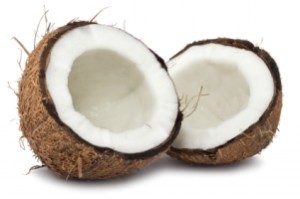 Coconut is shaping up to be one of 2026’s hottest ingredients in snacks, baked goods and beverages. From coconut water for quenching thirst to coconut oil for cooking and bacon, coconut is a very nutritious food that delivers numerous health benefits beyond its nutritional content. Rich in fiber, vitamins, and minerals, coconut is classified as a “functional food” and according to The Coconut Research Center, some cultures believe it to possesses healing properties far beyond that of any other dietary oil.
Coconut is shaping up to be one of 2026’s hottest ingredients in snacks, baked goods and beverages. From coconut water for quenching thirst to coconut oil for cooking and bacon, coconut is a very nutritious food that delivers numerous health benefits beyond its nutritional content. Rich in fiber, vitamins, and minerals, coconut is classified as a “functional food” and according to The Coconut Research Center, some cultures believe it to possesses healing properties far beyond that of any other dietary oil.
Coconut is a familiar flavor for many of us in indulgent treats like candy bars and pina coladas, but there are plenty of alternate ways to eat and cook with coconut in that won’t break the calorie bank. Look for coconut in the grocery store in various forms and think outside the box when you’re preparing it.
Unsweeted Dried Coconut: You probably recognize dried sweetened or unsweetend coconut from the baking aisle in the grocery store where it’s sold in plastic bags. Packaged coconut will usually keep about six months at room temperature and should be kept away from moisture – sometimes storing it in the refrigerator helps it retain its rich, buttery coconut taste. Use dried coconut for baking, as a topping on yogurt or frozen yogurt or tossed with your favorite granola for a hint of sweetness.
Coconut Milk: Derived from the flesh of mature coconut, coconut milk is known to have a number of vitamins, minerals and health benefits. While members of some cultures drink coconut milk on its own, it tends to be richer than the cow’s milk- a taste to which a lot of Americans are not accustomed. In cooking, you can use coconut milk for a subtle flavor in curries, satay sauces and certain desserts.
Fresh Coconut: Many people shy away from eating raw, fresh coconut because the unwieldy fruit can be difficult to crack open. It requires an actual hammer and screwdriver to open, crack the shell and remove the coconut meat from the shell. Once that is done, however, all you need is a paring knife to remove the flesh from the shell. Either slice thinly to eat plain or in your  favorite salad or grate lightly over fresh fruit or yogurt.
favorite salad or grate lightly over fresh fruit or yogurt.
Coconut Water: With more brands populating the grocery shelves than ever before, it’s hard to ignore the health benefits of coconut water. Instead of sports drinks that can be full of calories and added sugar, replace potassium and electrolytes after your next water with coconut water. Some brands are even flavored with natural essences of fruit, so they’ll quench any craving for something sweet.
Coconut Oil: Great for use in cooking or baking, coconut oil is mild and relatively flavorless once cooked at high temperatures. For people who don’t love the taste of coconut, coconut oil is a great way to reap those benefits. You can either find coconut oil in your favorite natural foods store or make your own cold pressed coconut oil. Coconut oil also has moisturizing properties and is even great for skin or as a hair treatment.
Try these delicious coconut recipes:
